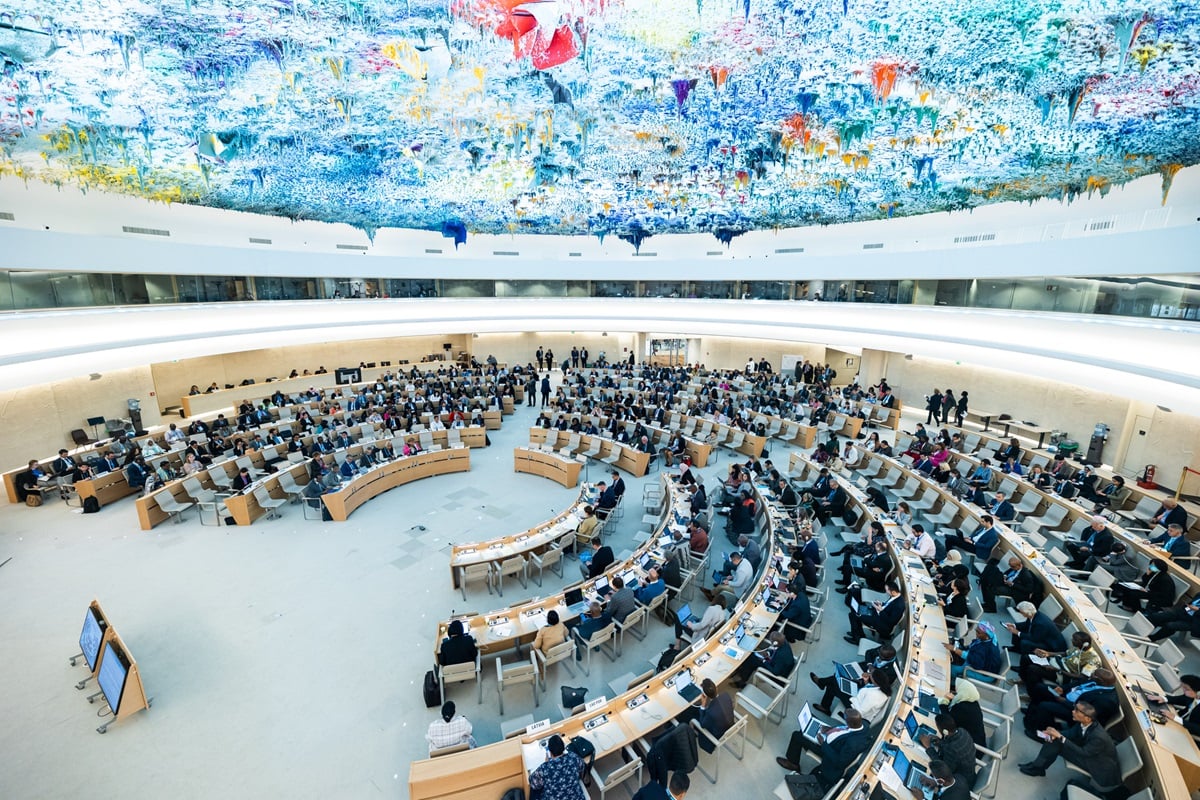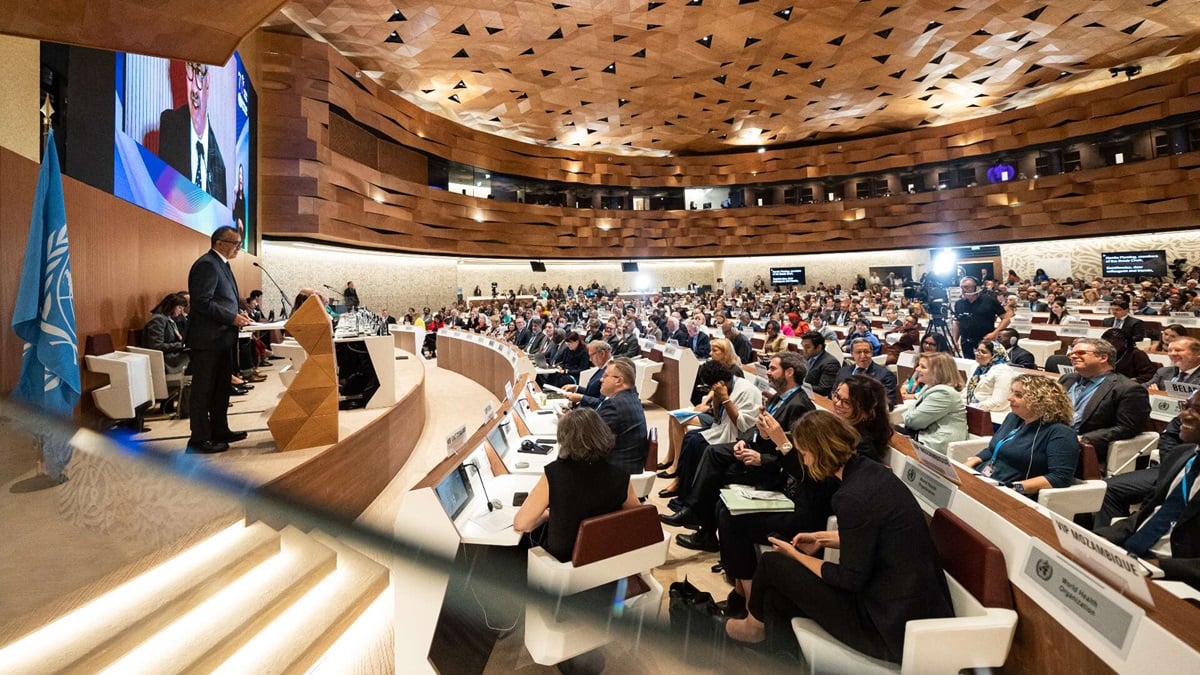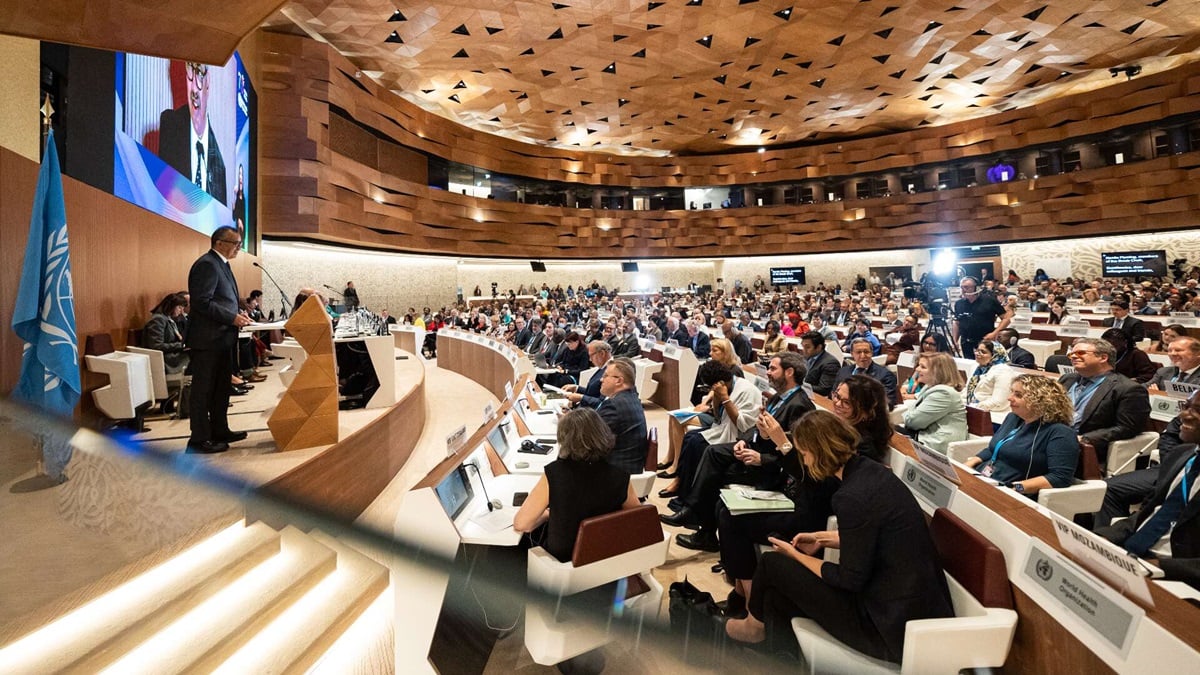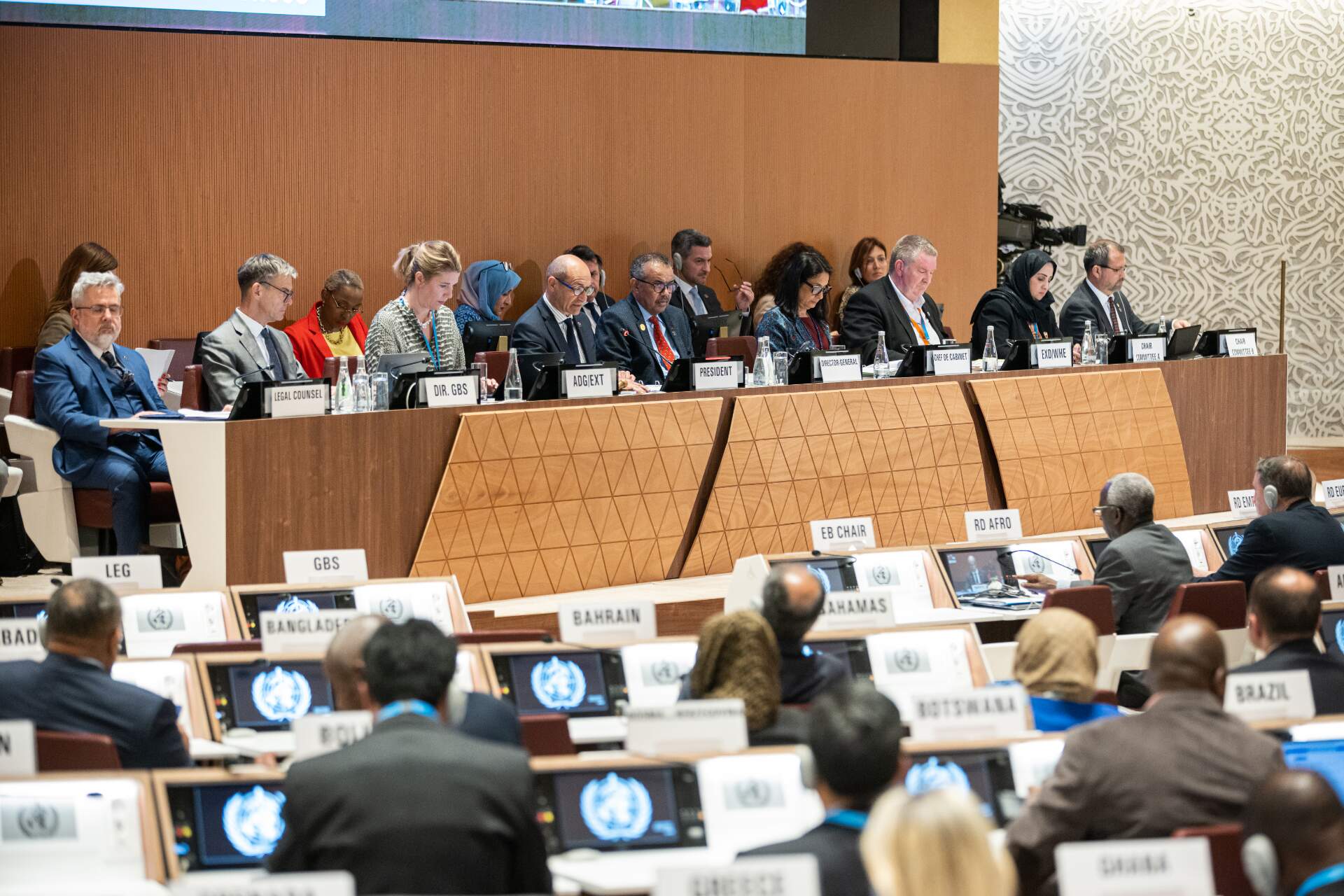“Level Up for Global Health: The 78th World Health Assembly Kicks Off”
In a world where health is the ultimate high score, the stakes are higher than ever. The 78th World Health Assembly, taking place at the World Health Organization (WHO) headquarters, is the ultimate multiplayer event where global leaders, health experts, and advocates come together to tackle the most pressing health challenges of our time. As we join forces to level up for global health, the game is on to save lives, prevent pandemics, and promote well-being for all.

Addressing Global Health Challenges: A Comprehensive Agenda

The Seventy-eighth World Health Assembly is convening in Geneva, Switzerland, with a packed agenda that covers a diverse range of topics in WHO’s Programme of Work. The Health Assembly will bring together high-level country representatives and other stakeholders to address global health challenges, including the health and care workforce, antimicrobial resistance, health emergencies, preparedness, polio, climate change, and social connection as determinants of health.

Health and Care Workforce: A Critical Priority
The health and care workforce is facing numerous challenges, including a shortage of healthcare professionals, inadequate training, and uneven distribution of healthcare services. According to the World Health Organization (WHO), there is a global shortage of 18 million healthcare workers, with the majority of these shortages occurring in low- and middle-income countries.
WHO has identified several solutions to address these challenges, including increasing funding for healthcare workforce development, improving working conditions for healthcare workers, and promoting the use of technology to enhance healthcare delivery. The Health Assembly will discuss and prioritize these solutions to ensure that the health and care workforce is equipped to meet the needs of the global population.
- Increasing funding for healthcare workforce development: WHO recommends increasing funding for healthcare workforce development to address the global shortage of healthcare professionals.
- Improving working conditions for healthcare workers: WHO recommends improving working conditions for healthcare workers, including providing them with adequate training, equipment, and resources.
- Promoting the use of technology to enhance healthcare delivery: WHO recommends promoting the use of technology to enhance healthcare delivery, including the use of telemedicine and electronic health records.
- Improving infection prevention and control practices: WHO recommends improving infection prevention and control practices, including hand hygiene, use of personal protective equipment, and environmental cleaning.
- Promoting the responsible use of antibiotics: WHO recommends promoting the responsible use of antibiotics, including the use of antibiotics only when necessary and for the shortest duration possible.
- Developing new antimicrobial agents: WHO recommends developing new antimicrobial agents, including antibiotics, antimicrobial peptides, and bacteriophage therapy.
Antimicrobial Resistance and Health Emergencies

Antimicrobial resistance is a growing global threat, with the potential to undermine the effectiveness of modern medicine. According to the WHO, antimicrobial resistance is a major public health concern, with the potential to cause widespread illness and death.
The Health Assembly will discuss WHO’s response to health emergencies, including antimicrobial resistance. WHO recommends a comprehensive approach to addressing antimicrobial resistance, including improving infection prevention and control practices, promoting the responsible use of antibiotics, and developing new antimicrobial agents.
Awards and Recognition: Celebrating Excellence in Global Health
The Seventy-eighth World Health Assembly will also recognize and celebrate excellence in global health through various awards and recognition programs. The Health Assembly will consider several resolutions and decisions, many of which are put forward by the Executive Board at its 156th session.
The WHO Director-General’s Address
Dr. Tedros Adhanom Ghebreyesus, the WHO Director-General, will deliver an address to the Health Assembly, outlining his key messages and priorities. The Director-General’s address will provide an overview of the current state of global health and highlight the key challenges and opportunities facing the WHO.
According to the WHO Director-General, the Pandemic Agreement is a critical step towards safeguarding the world from a repeat of the suffering caused by the COVID-19 pandemic. The Director-General recommends that Member States adopt the Pandemic Agreement, which will provide a framework for countries to work together to prevent, prepare for, and respond to pandemics.
- Pandemic Agreement: The Pandemic Agreement is a landmark proposal developed over three years of intense negotiations by the Intergovernmental Negotiating Body, composed of all WHO Member States.
- Key priorities: The WHO Director-General recommends that Member States prioritize the Pandemic Agreement, as well as other key priorities, including sustainable financing, health and care workforce development, and antimicrobial resistance.
- Sustainable financing: The proposed resolutions and decisions recommend increasing funding for the WHO to address the global shortage of healthcare professionals, improve working conditions for healthcare workers, and promote the use of technology to enhance healthcare delivery.
- Health and care workforce development: The proposed resolutions and decisions recommend increasing funding for healthcare workforce development, improving working conditions for healthcare workers, and promoting the use of technology to enhance healthcare delivery.
- Antimicrobial resistance: The proposed resolutions and decisions recommend improving infection prevention and control practices, promoting the responsible use of antibiotics, and developing new antimicrobial agents.
Resolutions and Decisions: A New Era for Global Health
The Health Assembly will consider several resolutions and decisions, many of which are put forward by the Executive Board at its 156th session. These resolutions and decisions will provide a framework for countries to work together to address global health challenges and promote health and well-being for all.
According to the WHO, the proposed resolutions and decisions reflect the key priorities of the WHO, including sustainable financing, health and care workforce development, and antimicrobial resistance. The resolutions and decisions will provide a roadmap for countries to implement the WHO’s Programme of Work and achieve the Sustainable Development Goals (SDGs).
The Future of Global Health: Opportunities and Challenges
The Seventy-eighth World Health Assembly will provide a platform for countries to discuss and prioritize the future of global health. The Health Assembly will consider several key takeaways from the meeting, including the implications for global health policy, practice, and governance.
According to the WHO, the key takeaways from the meeting include the importance of sustainable financing, health and care workforce development, and antimicrobial resistance. The WHO recommends that countries prioritize these areas and work together to address the global health challenges facing the world.
- Sustainable financing: The WHO recommends that countries increase funding for the WHO to address the global shortage of healthcare professionals, improve working conditions for healthcare workers, and promote the use of technology to enhance healthcare delivery.
- Health and care workforce development: The WHO recommends that countries increase funding for healthcare workforce development, improve working conditions for healthcare workers, and promote the use of technology to enhance healthcare delivery.
- Antimicrobial resistance: The WHO recommends that countries improve infection prevention and control practices, promote the responsible use of antibiotics, and develop new antimicrobial agents.
Conclusion
Conclusion: Seventy-eighth World Health Assembly – A New Chapter in Global Health
As the Seventy-eighth World Health Assembly comes to a close, it is clear that the global health community has made significant strides in addressing some of the most pressing health challenges of our time. The daily updates from the World Health Organization (WHO) have highlighted key discussions around the implementation of the Global Action Plan to Achieve Universal Health Coverage, the ongoing efforts to combat the COVID-19 pandemic, and the growing concern around antimicrobial resistance. The assembly has also underscored the importance of strengthening health systems, particularly in low- and middle-income countries, to ensure that everyone has access to quality healthcare.
The significance of the Seventy-eighth World Health Assembly cannot be overstated. The discussions and agreements reached have far-reaching implications for global health, economies, and societies. The assembly’s focus on universal health coverage, for instance, has the potential to reduce health inequities and improve health outcomes, leading to increased productivity and economic growth. Moreover, the WHO’s efforts to combat antimicrobial resistance will require a concerted global response to prevent the emergence of “superbugs” that could have devastating consequences for public health. As the world grapples with these complex challenges, it is clear that the Seventy-eighth World Health Assembly has set the stage for a new chapter in global health governance.
As we move forward, it is essential that we build on the momentum generated by this assembly. We must continue to invest in strengthening health systems, promoting universal health coverage, and addressing the root causes of health inequities. The future of global health depends on our collective ability to work together, share knowledge, and resources, and prioritize the needs of the most vulnerable populations. As the WHO Director-General has emphasized, “Health is a fundamental human right, and it is our collective responsibility to ensure that everyone has access to quality healthcare.” The challenge ahead is daunting, but with the World Health Assembly’s commitment to action, we can create a healthier, more equitable world for all.